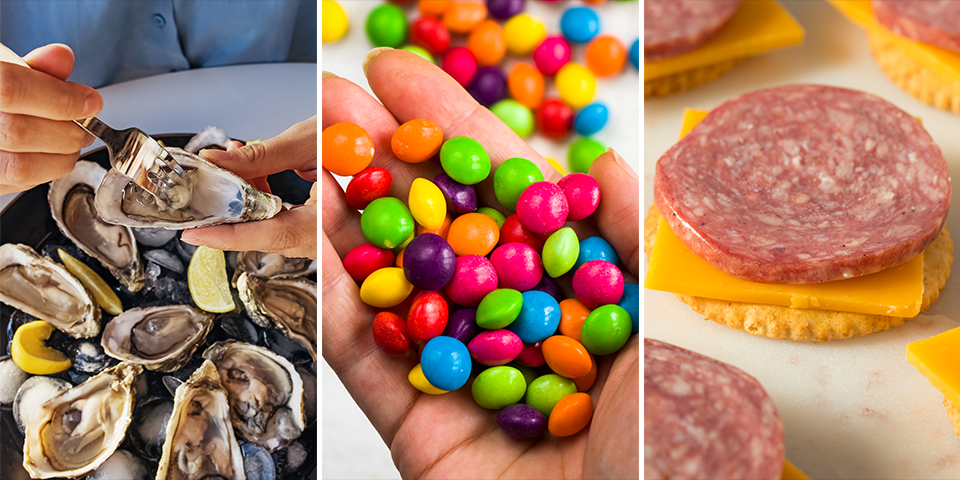Many cultures have foods that may seem unappetizing to others, such as haggis, lutefisk, and balut. These dishes can be off-putting due to their unfamiliar ingredients and preparation methods.
While some foods may look and smell strange to newcomers, there are also hidden facts about everyday foods that can be unsettling. Here are some interesting and disturbing facts about common foods that you may not have been aware of:
1. Lemon Slices May Be Covered in Poo Particles

A study found that restaurant lemons can be covered in bacteria and yeast, including fecal matter and E. coli. This highlights the importance of proper food handling and hygiene in food establishments.
2. Raw Oysters Are Alive
Raw oysters are not only uncooked but also alive when consumed. It is crucial to ensure that oysters are fresh and alive to avoid the risk of bacterial contamination.
3. Most Gummy Candies Are Made From Pig Skin
Gummy candies are often made from gelatin, which is derived from animal parts like skin, bones, and tendons. Vegan alternatives made from agar agar are now available for those who prefer animal-free options.
4. You Can Buy Coffee Sourced From Civet Poop
Kopi luwak coffee beans are processed after passing through a civet's digestive tract. While this unique method of production results in a distinct flavor, it has raised concerns about animal welfare.
5. Your Favorite Candy Is Covered in Insect Juice
Confectioner's glaze, used to coat candies, is made from shellac sourced from lac insects. This natural polymer is considered safe for consumption by regulatory authorities.
6. Vanilla Flavoring Can Come From Beaver Butts
Castoreum, derived from beaver castor glands, is used as a vanilla flavoring agent in various food products. Despite its origins, studies have shown that it poses no health risks.
7. Salami Is Uncooked Meat
Salami is a type of dry-cured sausage that is not cooked but rather fermented and dried. Proper processing and storage methods are essential to prevent harmful bacterial growth.
8. Ice Machines Can Harbor More Bacteria Than a Toilet
Ice machines in restaurants may contain harmful bacteria due to improper hygiene practices. Regular cleaning and maintenance are necessary to ensure the safety of the ice used in beverages.
9. Fig Bars Contain Dead Wasps (Sort of)
Some figs require pollination by fig wasps, which may die inside the fruit during the process. However, most commercially available figs do not rely on wasps for pollination.
10. Canned Mushrooms Are Allowed to Contain Maggots
The FDA permits canned mushrooms to contain a certain number of maggots per 100 grams before they are considered unfit for consumption. This fact may be unsettling to those who are sensitive to insect contamination in food products.
